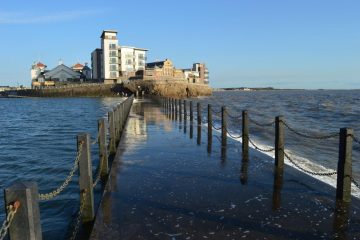Exploring Valencia: The Heart of Spain’s Cultural Landscape
Introduction to Valencia
Valencia, a city on Spain’s eastern coast, is not just famous for its stunning architecture and beautiful beaches but also plays a vital role in the country’s cultural and economic framework. As the third-largest city in Spain, Valencia attracts a multitude of visitors and businesses, making it a significant hub for industry and tourism.
Valencia’s Cultural Significance
Valencia is renowned for its unique blend of historical and modern attractions. The city boasts the stunning City of Arts and Sciences, designed by Santiago Calatrava, which houses a science museum, planetarium, aquarium, and more. The historic old town offers a glimpse into the city’s rich past, featuring the impressive Valencia Cathedral, which is said to house the Holy Grail, and the bustling Central Market, one of the largest in Europe. Events like Las Fallas, a festival celebrated every March, depict the city’s vibrant culture through fireworks, artistic displays, and a sense of community.
Economic Development in Valencia
Economically, Valencia is experiencing substantial growth. The port, one of the most significant in Europe, plays a crucial role in the import and export of goods, thus boosting the local economy. Additionally, the IT and tech industries are flourishing, with numerous startups emerging in the area, aided by initiatives from the local government to attract investment and talent. The recent establishment of the Valencia International Digital Hub is a testament to the city’s commitment to being at the forefront of innovation.
Tourism in Valencia
Tourism is a pivotal part of Valencia’s economy, with millions of visitors attracted to its beaches, gastronomy, and cultural experiences. The city is famous for its paella, with many restaurants offering this traditional dish along the Mediterranean coast. Travellers are also drawn to its annual festivals, rich historic architecture, and the lively atmosphere that complements its beautiful surroundings.
Conclusion
Valencia stands as a prime example of how a city can blend tradition and modernity. Its cultural richness and economic developments promise a bright future, attracting more residents, tourists, and businesses alike. For those seeking a dynamic destination that exemplifies Spanish culture, Valencia is undoubtedly one to watch.









